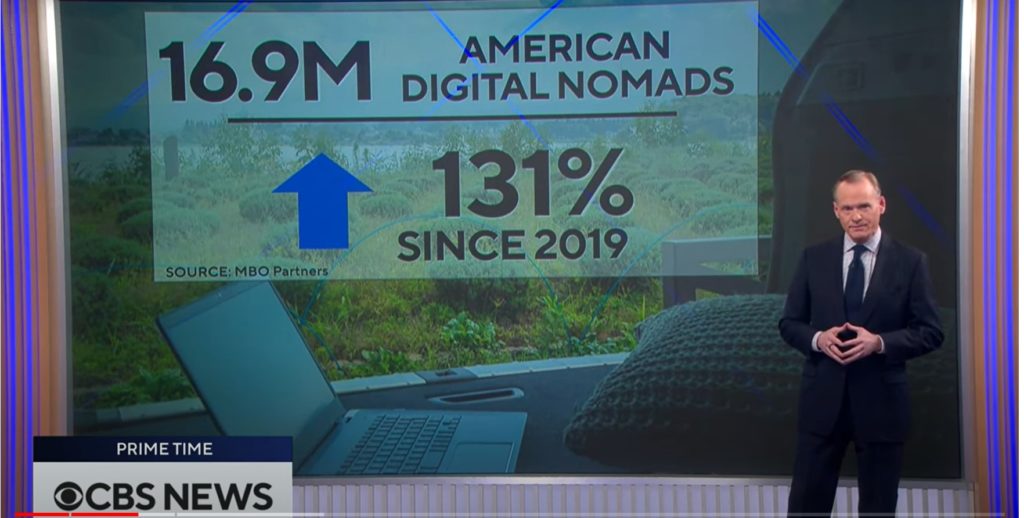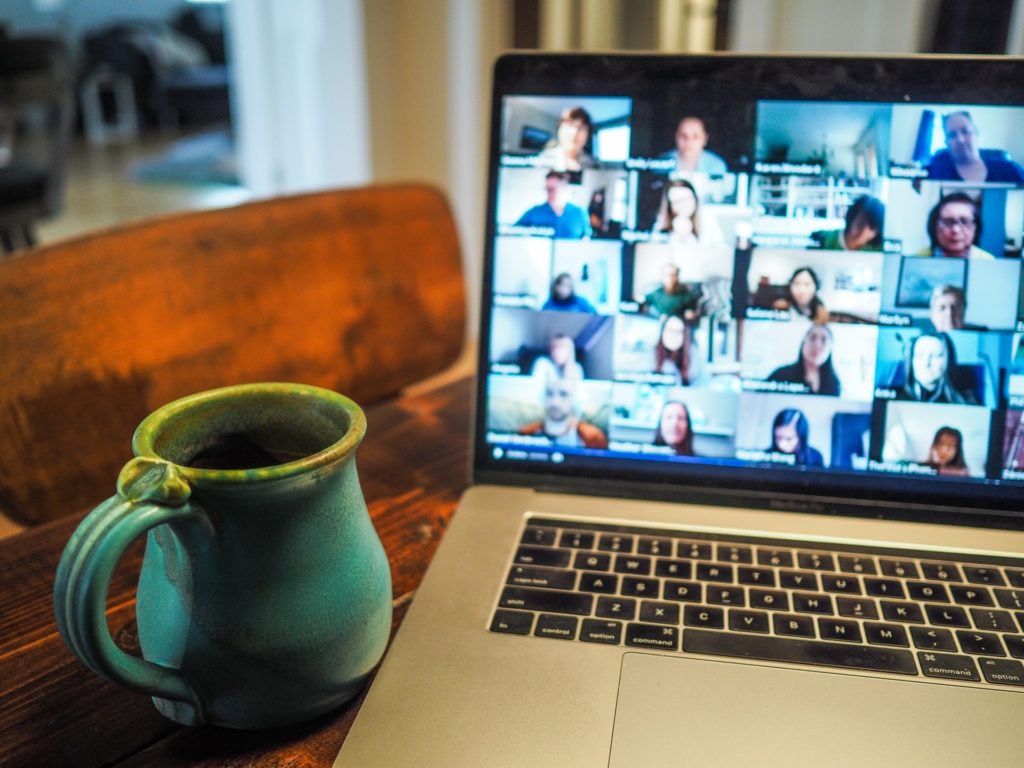Often when we think about remote work and community it’s easy to imagine some sort of YouTube or TikTok dream. You know, the one where everyone lands in Bali, operates from a cool coworking (or co-living) space, and enjoy coffee and nights out together? They swap contacts and support each other, often collaborating and finding freedom and fame by the beach.
I’m sure it is like that for some people.
But for many, finding community while we work remotely isn’t that simple.
Cooper and I recently relocated back to the UK on an Ancestry Visa. We love living in England. There’s so much opportunity here professionally speaking. Socially too, in the right situation. I also love most things about working remotely. We have the tech and the know-how to get things done easily. Many employers ‘get it’ too, so there’s no clock watching across time zones – trust exists. And, there are some wellbeing benefits associated with not having to be ‘on’ all day in an office.
Why then, last weekend over lunch, did it dawn on us that we feel a bit “meh”?

What’s going on with remote work then?
A CBS report we spotted on YouTube, shared that now over 17 million Americans call themselves digital nomads. That is, they are Americans living and working in other parts of the world.
In a stat that surprised me, CBS reported that two thirds of these so-called digital nomads were not freelancing or setting up their own businesses. Not at all. They are in fact working remotely for an American-based company.

And this is just Americans we’re talking about here. What about remote workers from all other corners of the globe?
There are now dozens of countries in Europe alone that offer what’s called a Digital Nomad visa, and we’ve seen plenty more options to apply for the same sort of thing around the world. In fact, Colombia is one of the latest off the rank to offer a digital nomad visa, and it’s quickly gaining traction as one of the most popular! (count us in…one day!).
A digital nomad visa enables the holder to legitimately work remotely from a different country, complying with tax rules and enjoying temporary resident status.
‘Remote working’ and ‘digital nomads’ are not new concepts, but they are now far more common than pre-COVID. Cooper and I have been interested in this space since 2019 and I am blown away by the changes we’ve witnessed since going through a global pandemic. Obviously, there are significant workforce challenges being faced by employers due to this change, but this post isn’t about that (although with my ‘Internal Comms Manager’ hat on, I could write a few posts about it…).
I’m in a position to work remotely and experience the benefits and drawbacks of it for the first time, which is how we’ve ended up writing this piece.
Remote work and community
Back to community. I wonder if there’s a tendency to undervalue it when it’s there? From neighbours to friends and colleagues – the incidental banter, conversation and learning that goes on is important for our own development.
With millions of people around the world now working remotely, not all of them can possibly be living that happy collaborative Bali dream.
you might like to read 7 Digital Nomad Tips for Balance and Routine
As a remote worker, you may find yourself in a country where your first language isn’t as widely spoken – this can potentially make it harder to find your tribe. Similarly, if you’re in a regional area rather than a capital or big city, there may be fewer networking opportunities.
It’s easy to find yourself feeling isolated.
What to do then?
you might enjoy How to Make the Most of a Pet Sitting and Digital Nomad Community
Finding your remote work tribe
Cooper and I have been exploring what works for us and wanted to share our experience in case it helps anyone else in a similar situation.
1. Local area – sports and recreation
The first big tip from us is to find a local sports or active meetup. Often the mere act of getting involved trumps the ability to communicate in your first language. Cooper, being more sporty than me, has always made heaps of friends by proactively asking around for how to get involved in anything from footy to running clubs.
It takes a bit of guts to get yourself out there, but this path usually reaps rewards and long-term friends.
Volunteering is a great alternative if, like me, you’re not as sporty as Cooper but happy to have a chat and turn your hand to anything. There are some great opportunities happening in the UK in this space as part of the King’s coronation!
As dog owners, we also always find ‘dog people’ friends at local parks. And you should keep an eye out for interest-based meetups like Yoga or meditation workshops, creative or activity based events.
2. Find an industry conference or a remote work/digital nomad event
If you know a little about us, you have heard us rave about TBEX before. While attending something like this does mean you need to travel, there’s a high chance you’ll connect with like-minded people and form forever-friendships with people who ‘get’ what you’re doing.
There are now plenty of digital nomad and remote working conferences too, e.g. Running Remote just ran a fantastic conference in Lisbon. Again, these attract people from all different industries and parts of the world. But, everyone has the remote work aspect in common. Connections made at events like this are often life-long and continue authentically online despite distance.
3. Check what’s on offer from your company
If your workplace presents remote work as an option, chances are it’s a big enough company to be offering great opportunities for connection too. Get online and have a look over your company’s intranet or Slack/Yammer channels to discover what social groups are available for team members who share common interests and purpose.
Some of these groups offer a unique chance to not just connect, but to make a meaningful difference to company culture, ‘belonging’ and mentoring schemes. If you’re unsure where to start, get in touch with your workplace’s internal communications or HR team who I’m sure will help you out.
Showing up consistently to add your support and get involved helps to add structure and purpose in your day. And, you’re making a difference from wherever you may be.
I’ve found it’s also really important to participate in meetings and video calls where you can, even if you need to juggle time-zones. Having the chance to collaborate and brainstorm with my team mates from abroad first thing in the morning usually adds a spring to my step and sets the tone for my day.
4. Finding community online
This one isn’t so much about just adding yourself to just any Facebook, Reddit, LinkedIn or Slack community. It is about finding which community resonates with you, where you hang out.
Where are you most likely to be so you can authentically interact with an online group and find real connection?
This piece by We Work Remotely offers a few handy tips on how to optimise your favourite channel (Twitter, Facebook, LinkedIn, Reddit, Slack) to make meaningful connections while you work remotely.
5. Create your own community!
Can’t find a local meetup or online community that’s right for you, or want more? You may not be alone…
Take to Facebook or Meetup and set up an event at a nearby coffee shop, pub, museum or park. You could theme it (e.g. ‘creative meetup’ or ‘expat meetup’) and see what interest you can raise. Sometimes these things take a little time too, so give it a consistent go for a few months to see who you can attract to your online or IRL meetup.
Acting as the connector yourself means you’re making a huge difference to other people. It also potentially helps to add to your professional and personal brand or reputation which can lead to new friends, business leads and opportunities of all kinds.
Here’s our story about how we accidently created our own community, and how we make the most of it now :)
Remote work resources
If you are in a similar situation to us and working remotely yourself, here’s some of our fave resources that support work/life experience in 2023:
We’d love to hear about your experience too. Drop us a line in the comments below.







